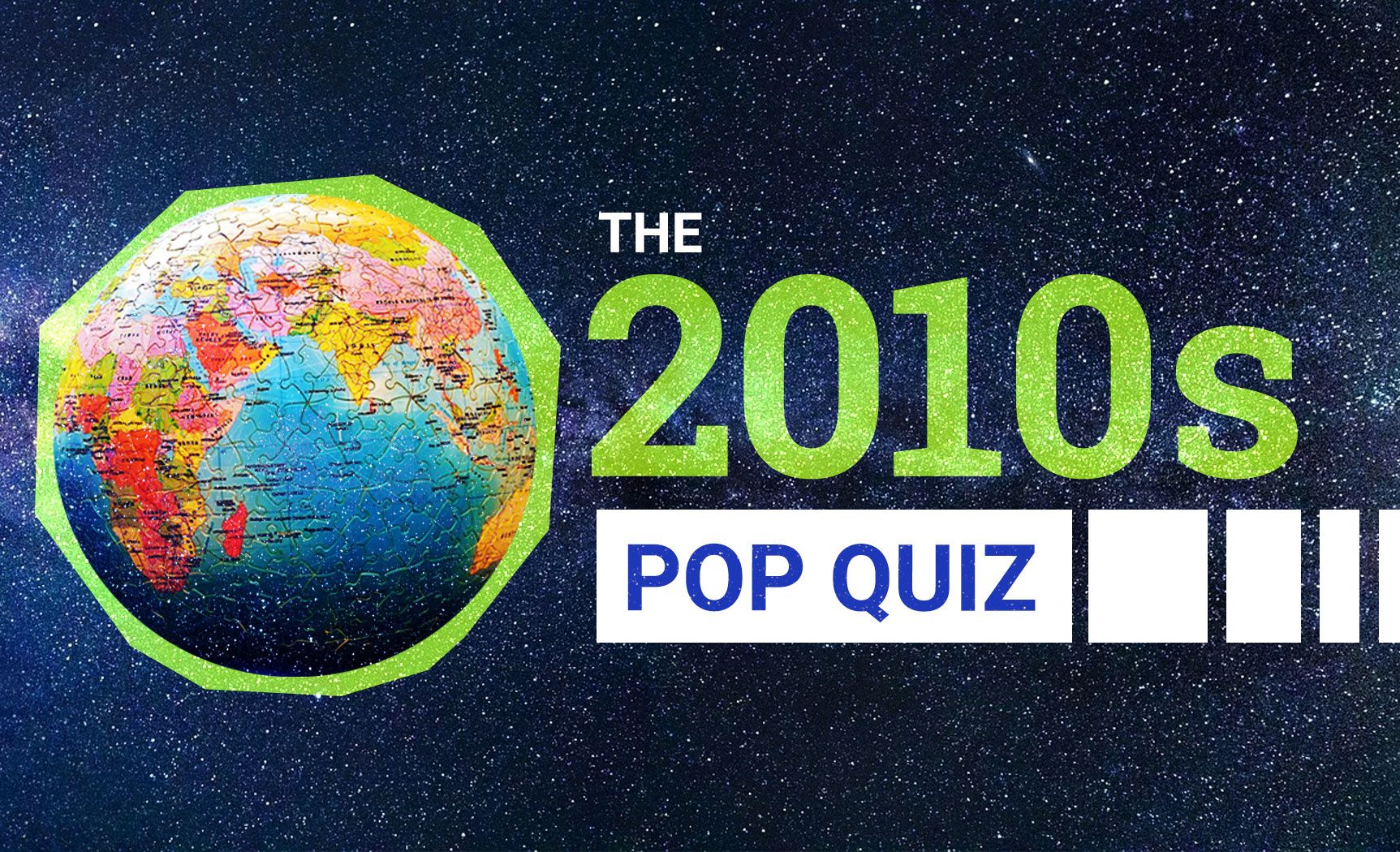This decade began in the shadow of the global financial crisis and the light of the Arab Spring. It ended with a world plagued by surging populist nationalism, fears that new technologies are undermining democracy, and the threat of a new cold war, this time between the US and China.
As you try to wrap your mind around exactly what's happened over the past ten years, here are a few questions to put the decade in perspective. (Answers are below.)
1. Of the people who lead the world's ten largest economies, only one person was in power for the entire decade – who was it?
2. Which two countries were the only ones to expand their slice of the global economic pie over the past decade?
3. Which of the following European far-right political parties did not exist in 2010: Italy's Lega, Denmark's Danish Peoples Party, Germany's Alternative for Deutchland, or France's National Rally?
4. Which was the only country to emerge from the Arab Spring with a democracy that lasted the decade?
5. Facebook currently has 2.4 billion active monthly users. How many of those did it add over the past ten years?
6. Since 2010, has the percentage of people living in extreme poverty fallen or risen?
7. What song topped the US pop charts in 2010?
ANSWERS:
1. The lone top-10 leader who lasted the whole decade was Angela Merkel. She took office as German Chancellor in 2005. Expand to the world's top 20 economies, and you can include Russia's Vladimir Putin (since 2000) and Turkey's Recep Tayyip Erdogan (2001).
2. China and the United States increased their share of global GDP. In 2010, China accounted for 9 percent of global output, rising to 15 percent by 2018. The US went from 22 percent to 23 percent over the same time frame. If you measure using PPP (purchasing power parity – a yardstick that takes into account the relative strength of each country's currency), then you can add India to the list.
3. The new kid on the far-right block is Alternativ fur Deutschland (AfD), which was founded in 2013. In 2017, it became the first far-right party to enter the German legislature since World War Two. Lega, formerly Lega Nord, was founded in 1991 as a northern Italian separatist party, In 2018, party leaders dropped "Nord" from the name, rebranding Lega as a pan-Italian Euroskeptic and anti-immigrant nationalist party. Similarly, France's Front National, founded in 1972, renamed itself National Rally in 2018. The Danish People's Party was founded in 1995.
4. The lone Arab Spring success story is Tunisia. Egypt had a brief spell of democracy, when Muslim Brotherhood candidate Mohammad Morsi was elected president in 2012, but after a series of political errors, he was removed in a military coup a year later. He died in prison this year.
5. Facebook has added 2 billion regular monthly users since 2009, when it had about 400 million. Put another way, at the beginning of the decade, the population of Facebookistan was equal to that of two Brazils. Today, at about 2.4 billion, it's almost equal to China and India combined.
6. The global poverty rate has fallen significantly since 2010, when almost 16 percent of people in the world lived on less than 2 dollars a day. Today the number is about 11 percent – a difference of about 400 million people.
7. Did you wake up in the morning feeling like P-Diddy? Did you brush your teeth with a bottle of Jack? If so, you'll recall that the number one song of 2010 was "TiK Tok" by Ke$ha. Of course, by the end of the decade, a very different TikTok would be making global headlines…
